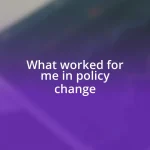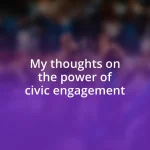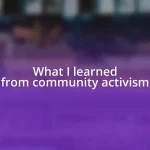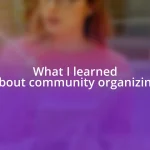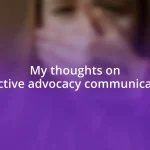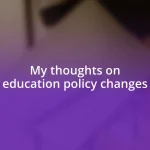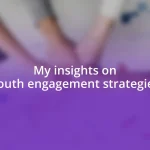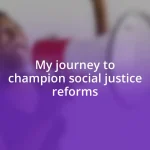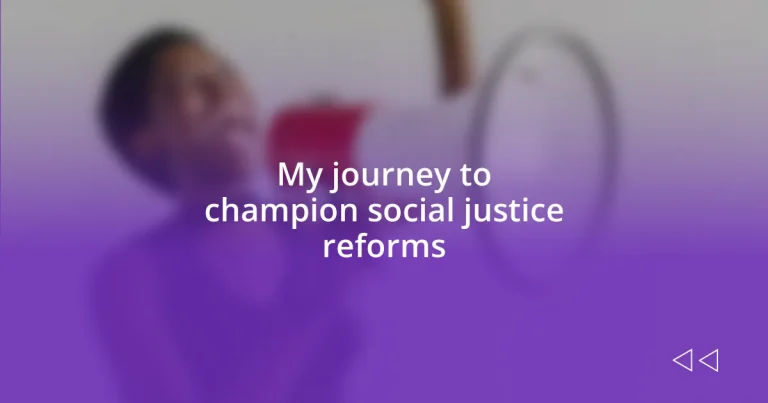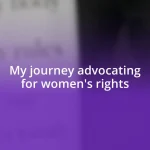Key takeaways:
- Understanding social justice reforms starts with listening to marginalized voices, fostering solidarity among diverse groups.
- Active listening and persuasive communication are critical advocacy skills that empower advocates to effect change.
- Building a supportive community through collaboration enhances advocacy efforts and creates a strong network for change.
- Measuring impact involves both qualitative and quantitative data, while sustaining change requires ongoing community engagement and storytelling.
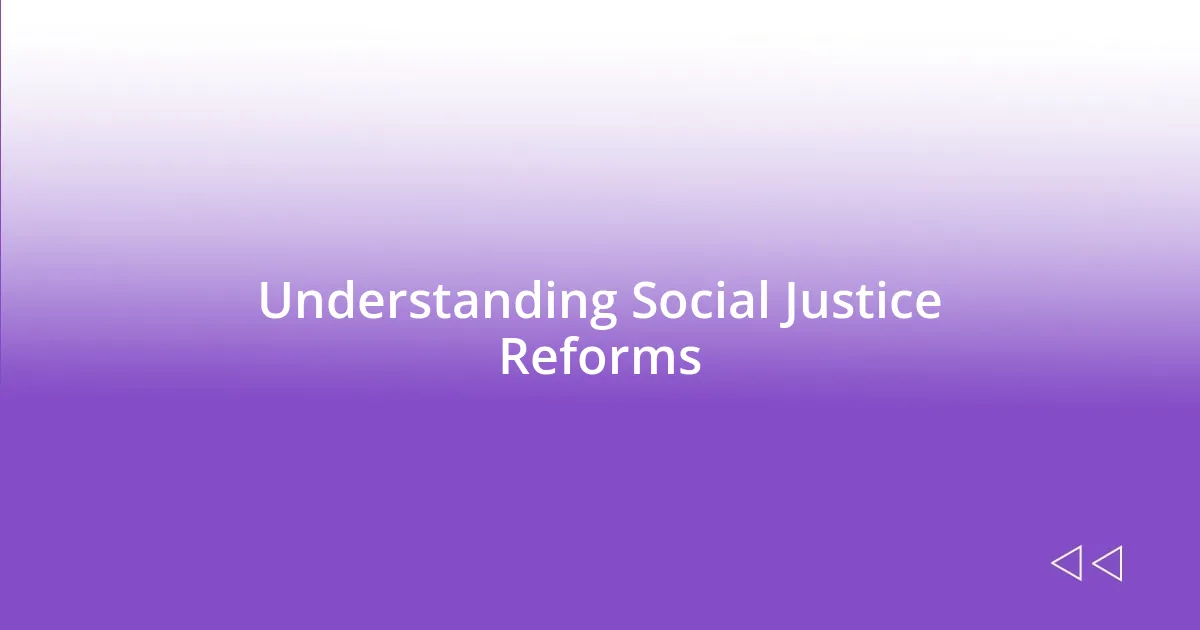
Understanding Social Justice Reforms
Understanding social justice reforms is crucial for creating an equitable society. I remember the moment I realized the impact of these reforms while volunteering at a community center. I saw firsthand how access to resources could transform lives—something I had often taken for granted.
Have you ever wondered what social justice reforms might look like in your own community? For me, it often starts with listening to the voices of those who feel marginalized. These conversations, filled with passion and heartache, paint a vivid picture of the systemic barriers people face daily.
One of the most profound realizations I’ve had is just how interconnected our struggles are. Social justice reforms aim not only to address inequalities but to foster understanding and solidarity among diverse groups. I believe that when one person’s fight for justice succeeds, we all rise together.
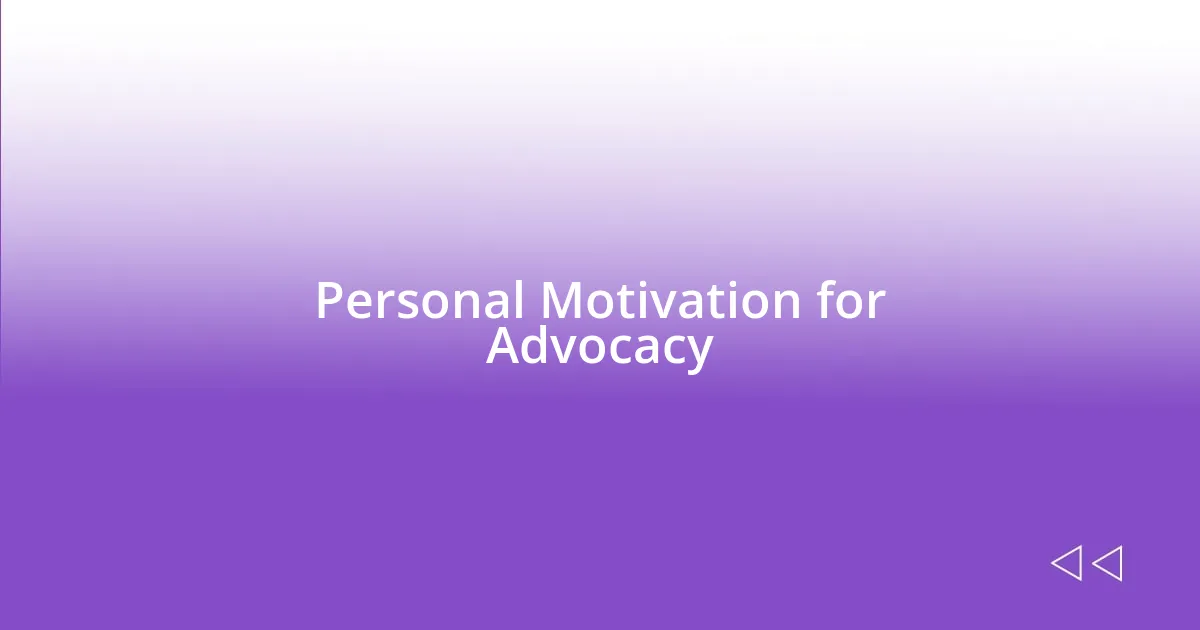
Personal Motivation for Advocacy
My journey into advocacy began from a deep-seated desire to impact my community positively. I still recall standing in a bustling town hall meeting, feeling the warmth and conviction of shared stories. It was a turning point for me; witnessing ordinary individuals share their struggles pushed me to reflect on my own privileges and motivated me to act.
In moments where I felt overwhelmed, I remembered my grandmother’s words: “Change starts small, but it ripples outwards.” This mantra has fueled my commitment to advocate for social justice. I’ve taken this message to heart at protests and community forums, which helped me unite with others striving for the same goal.
When I participated in a local initiative for affordable housing, it truly opened my eyes. Engaging with families facing displacement filled me with urgency and compassion. Each story I heard was a reminder that advocacy isn’t just a cause for me; it’s a responsibility to uplift those whose voices often go unheard.
| Motivational Moment | Emotional Connection |
|---|---|
| Town Hall Meeting | Experience of shared stories ignited my passion |
| Grandmother’s Wisdom | A guiding principle that inspired me to take action |
| Affordable Housing Initiative | Strong sense of urgency and compassion from personal stories |
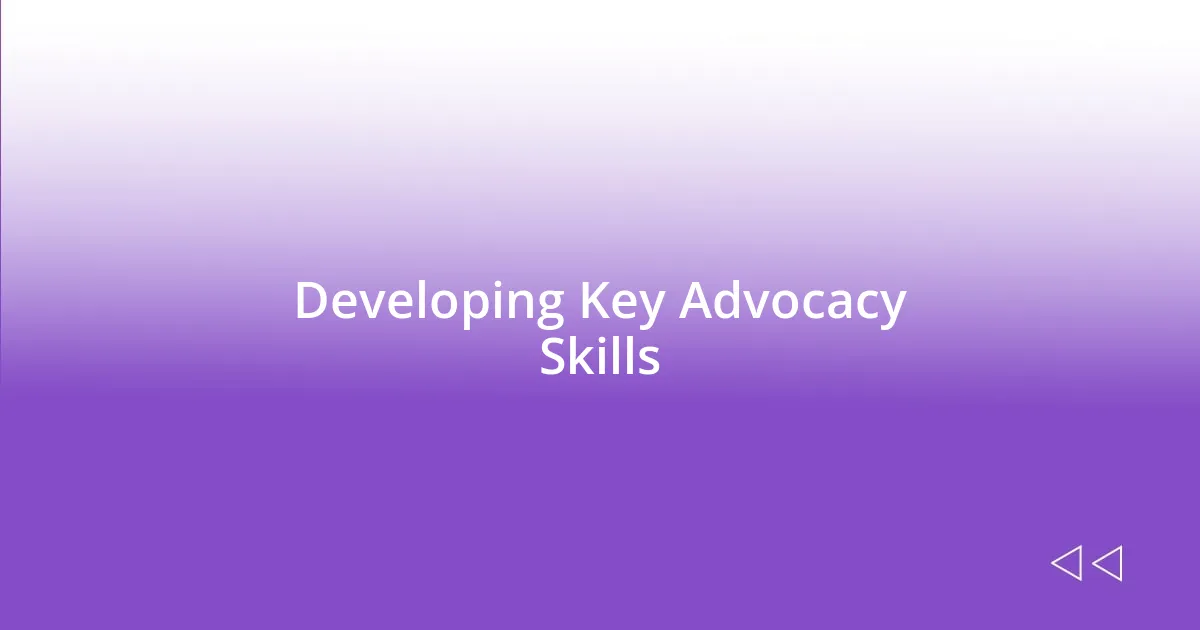
Developing Key Advocacy Skills
Developing key advocacy skills is essential for anyone looking to champion social justice reforms effectively. One skill I found invaluable was active listening. Engaging genuinely with those who are often overlooked enables advocates to grasp the nuances of their struggles. During a recent community forum, I fully absorbed a single mother’s narrative about how systemic barriers created hurdles in securing affordable childcare. Her story wasn’t just compelling; it pushed me to advocate for comprehensive support systems aimed at families in similar situations.
Here are some advocacy skills that I believe are critical for success:
- Active Listening: It allows you to understand individual experiences better.
- Persuasive Communication: Articulating your message clearly can galvanize others to join your cause.
- Networking: Building relationships with like-minded individuals strengthens advocacy efforts.
- Empathy: Developing a genuine understanding of others’ challenges fosters deeper connections and motivates action.
- Research Skills: Staying informed about relevant policies and data enables effective advocacy efforts.
Each skill develops over time but immersing oneself in the community and remaining open to learning strengthens the journey.
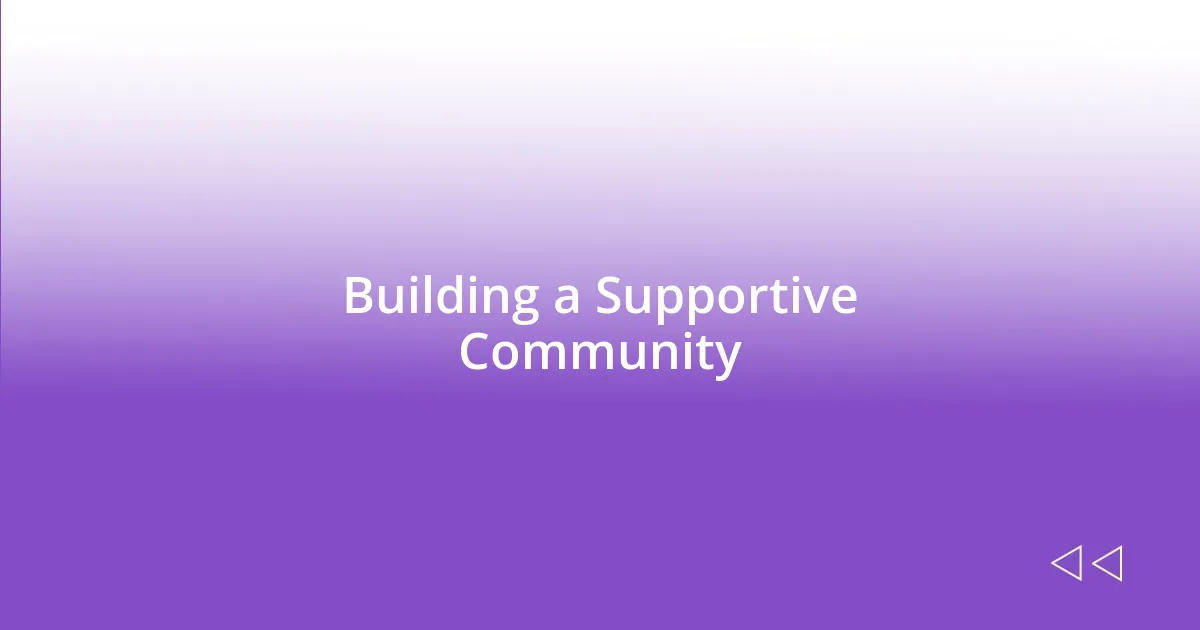
Building a Supportive Community
Establishing a supportive community is crucial for effective advocacy, and I’ve witnessed firsthand how powerful this can be. I remember organizing a small gathering in my living room where friends and family came together to discuss local issues. The exchange of ideas and the solidarity in the room created an uplifting atmosphere that made everyone feel heard and valued. Isn’t it amazing how simple conversations can spark a collective desire to create change?
In one instance, we decided to extend our reach beyond our circle by collaborating with local organizations. It was eye-opening to see the enthusiasm when they joined our efforts, amplifying our voices and expanding our impact. I felt a sense of belonging as we united for a common cause, propelling my conviction that these connections could drive real change in our community. How often do we underestimate the impact of building partnerships?
Moreover, I learned that nurturing relationships takes time and commitment. I recall volunteering with a neighborhood group focused on youth mentorship. The bonds we formed not only fostered trust but also turned the initiative into a supportive network for both mentors and mentees. This experience reinforced my belief that a thriving community isn’t built overnight; it’s a tapestry woven with shared experiences and ongoing support. What efforts can we make today to strengthen our communities for tomorrow?
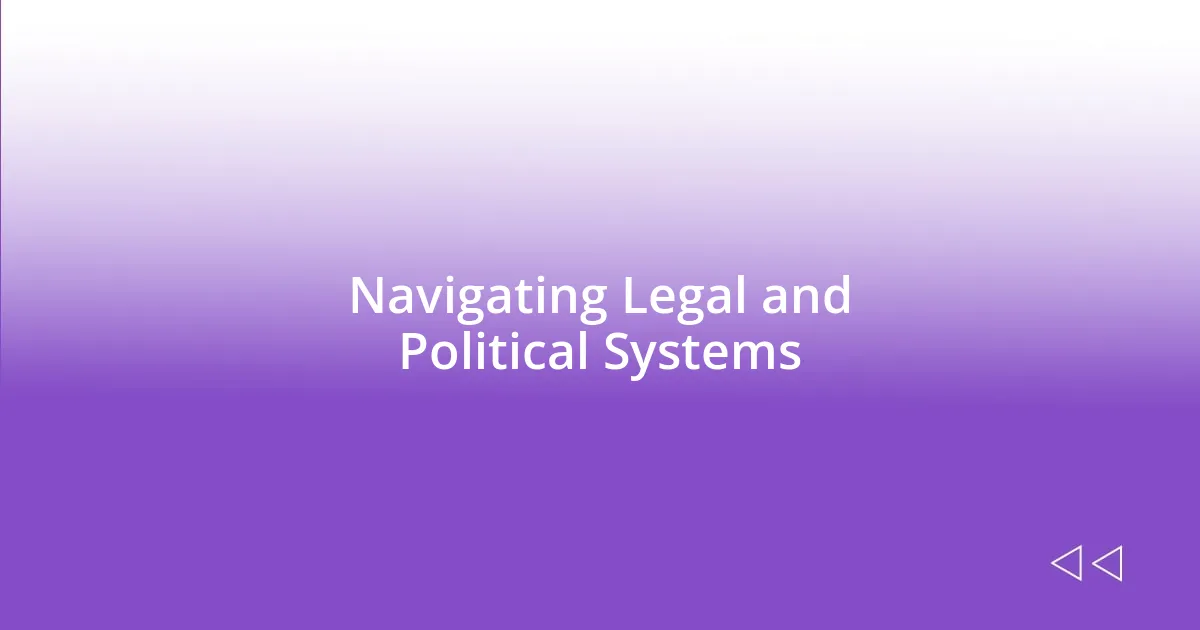
Navigating Legal and Political Systems
Navigating legal and political systems can feel daunting, but I’ve found that a mix of persistence and preparation makes all the difference. For instance, when I first sought to understand the intricacies of local legislation, I spent weeks pouring over city council meeting minutes and public comments. It was surprising how much insight came from just sitting in on a few sessions—seeing firsthand how policies can shift based on public input ignited a passion within me to advocate more effectively.
I remember my first attempt at lobbying for a legislative change. Walking into the state capitol, I felt a mix of fear and excitement. However, having researched the bill thoroughly and preparing a clear message helped me articulate my points with confidence. I’ll never forget the moment when a legislator paused, looked me in the eyes, and asked for more details. That small interaction reinforced the idea that every voice matters, and being informed equips you to make your case persuasively. Have you ever experienced the power of a well-timed question in a crucial conversation?
One critical lesson I’ve learned is the importance of building alliances with legal experts and local leaders. At one point, I collaborated with an attorney who was passionate about social justice. Together, we drafted a policy proposal aimed at reforming housing laws that disproportionately affected low-income families. The experience was eye-opening; it was not just about understanding the law, but also about weaving in the human stories behind those laws. From collaborating with others, I understood that navigating these systems is not a solo journey—it’s about collective strength and shared vision. Isn’t that a refreshing perspective on advocacy?
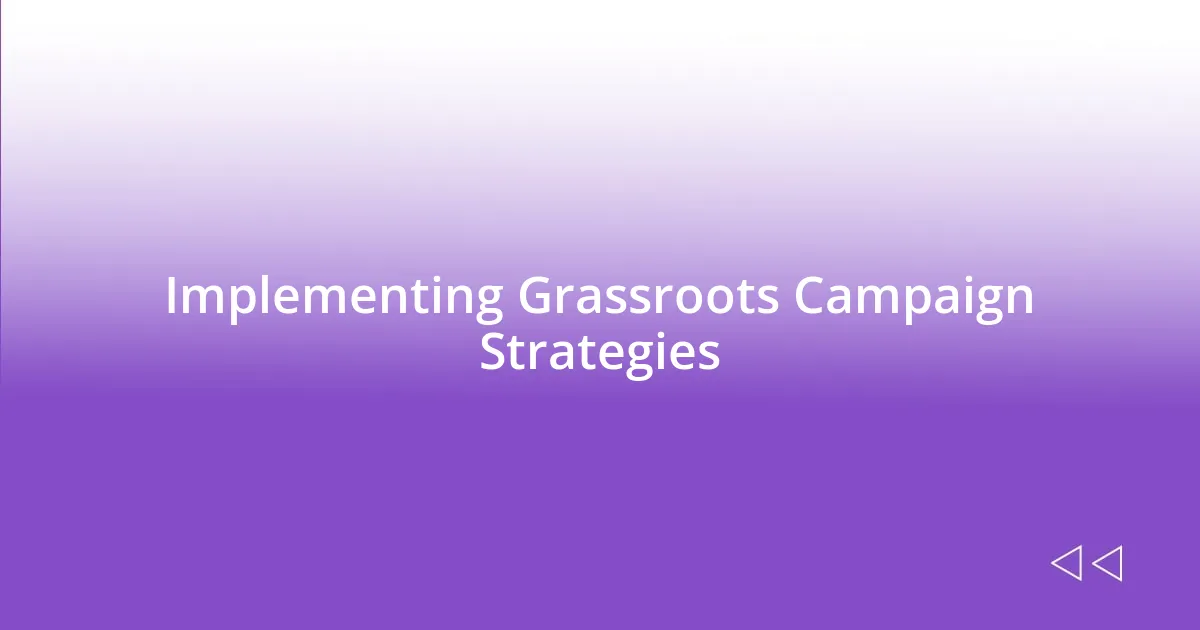
Implementing Grassroots Campaign Strategies
Implementing grassroots campaign strategies requires an authentic connection to the community. I remember attending a neighborhood meeting where the energy was palpable; people were eager to share their concerns and ideas. This environment of openness not only inspired me but highlighted the necessity of listening deeply to the voices most affected by social injustices. Isn’t it incredible how genuine conversations can pave the way for impactful strategies?
As we crafted our campaign message, I had the opportunity to facilitate workshops where residents could express their thoughts on pressing issues. One workshop in particular stands out—I could literally see the “aha” moments as participants connected their stories with larger social patterns. These storytelling sessions transformed our campaign narrative from mere statistics to powerful narratives that resonated deeply. How often do we realize that personal stories can be the most persuasive tools in advocacy?
I learned that a successful grassroots campaign thrives on consistent follow-up and engagement. When I initiated a monthly newsletter to keep our supporters informed and involved, I noticed a significant uptick in participation. Each response felt like a step closer to fostering a vibrant community dedicated to change. It made me wonder, what more could we achieve if we maintained that momentum and continued nurturing these relationships? The possibilities are endless when we collaborate and stay committed.
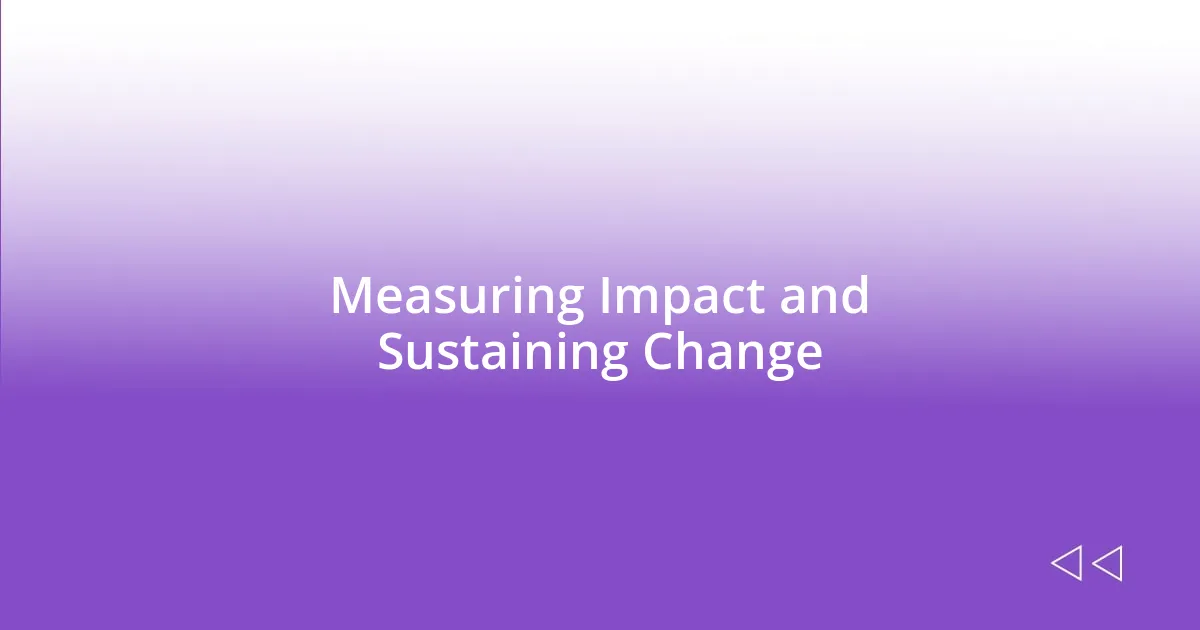
Measuring Impact and Sustaining Change
Measuring impact in social justice reforms often hinges on both qualitative and quantitative data. For example, during one project aimed at improving public transportation accessibility, we tracked metrics like increased ridership and user surveys gathering personal experiences. These tangible results helped gauge our success, and the heartfelt testimonials we collected truly underscored the real-life changes we facilitated. How rewarding it was to witness firsthand the gratitude expressed by individuals who finally had reliable access to work and education!
Sustaining change, however, requires more than just collecting data; it demands ongoing engagement with the community. I recall a time when we hosted regular forums where residents could discuss the changes that had been implemented and share their ongoing challenges. These sessions proved invaluable, allowing us to adapt our strategies based on real feedback. Isn’t it fascinating how active listening can empower communities to take ownership of the changes that affect them?
In my experience, one of the most compelling ways to measure impact is through storytelling. After launching a campaign, I invited participants to share how the reforms had transformed their daily lives. The stories were often emotional, revealing not just individual triumphs but the collective strength of a community coming together. When I reflect on that, I can’t help but think: how can we harness these powerful narratives to sustain momentum for future reforms? The intersection of data and story is where impactful, lasting change lives.

